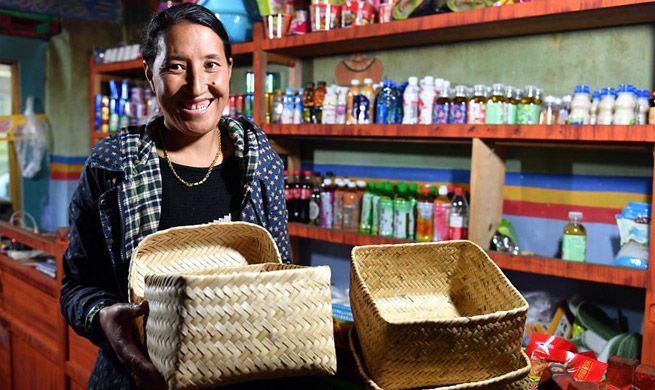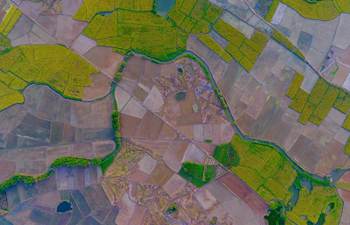BRUSSELS, Aug. 11 (Xinhua) -- The scandal over millions of contaminated eggs with insecticide fipronil has widened in Europe as it spreads eastwards on Thursday, bringing the number of affected countries to more than 10.
After around a tonne of contaminated egg yolk was discovered in Romania on Thursday, dozens of boxes of tainted eggs imported from the Netherlands via Germany were seized in Slovakia.
The discovery came after a specific alert from the European Commission as part of its rapid response system regarding human and animal food.
Before that, contaminated eggs were distributed to nearly 10 European countries including Belgium, the Netherlands and Germany. They have removed millions of eggs from supermarket shelves and carried out urgent investigations since Belgium gave the European Commission the first notification on July 20.
Fipronil is a pesticide effective on a large number of pests. It is considered slightly poisonous by the World Health Organization and is hence forbidden on animals destined for the food chain to prevent damage to the human liver, thyroid and kidney.
The eggs also reached France and Britain, while French Agriculture Ministry confirmed that 13 batches of contaminated Dutch eggs were delivered to the country between July 11 and 26.
Britain's Food Standards Agency on Thursday massively increased their estimate for the number of imported tainted eggs, saying that nearly 700,000 instead of the previous 21,000 eggs may have been distributed to Britain.
Denmark, Sweden, Switzerland and Luxembourg have also found contaminated eggs.
The contaminated eggs have mainly come from the Netherlands, one of the world's largest egg exporters, followed by Belgium and Germany. Over a hundred of poultry farms in the Netherlands and Belgium have been shut down.
The toxic substance is believed to be introduced to poultry farms by a Dutch company Chickfriend. Farmers in the Netherlands and Belgium said that they use it to treat red lice, a parasite in chickens.
With the scandal spiraling, legal procedures have started in some affected countries. The Dutch public prosecutor said Thursday that two people have been arrested in the country for involvement in the contamination.
Prosecutors said in a statement that they had conducted a series of coordinated raids at eight locations in the Netherlands and Belgium, seizing documents, bank accounts, automobiles and real estate.
The arrested suspects were directors at Chickfriend, which allegedly used the pesticide, they added.
After admitting the finding of the first contamination case taking place in early June, the Belgian food safety regulator has drawn criticism both at home and abroad for late notification.
However, Belgian Agriculture Minister Denis Ducarme told an agricultural emergency meeting on Wednesday that it was the Netherlands that failed to inform the contamination case as it had known about the problem last November.
In addition, Ducarme said that once Belgian authorities found out about a possible fipronil contamination in June and asked the Dutch side for information on where the agent had been distributed, they had to wait for nearly one month to receive an answer.
The Dutch food and goods watchdog NVWA rejected the claim in a statement, saying the allegations from Belgium were untrue.
The European Commission, which oversees the 28-nation European Union's food safety alert system, declined to comment on the debate.
It said that any country found not to have notified Brussels immediately about the detection of fipronil could face legal action.

















